#mental health information
Text
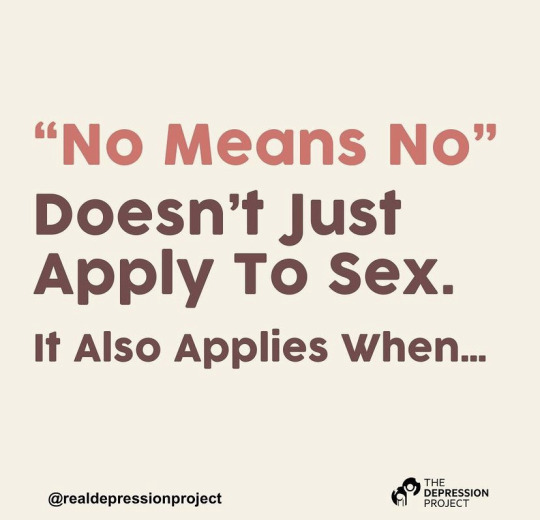
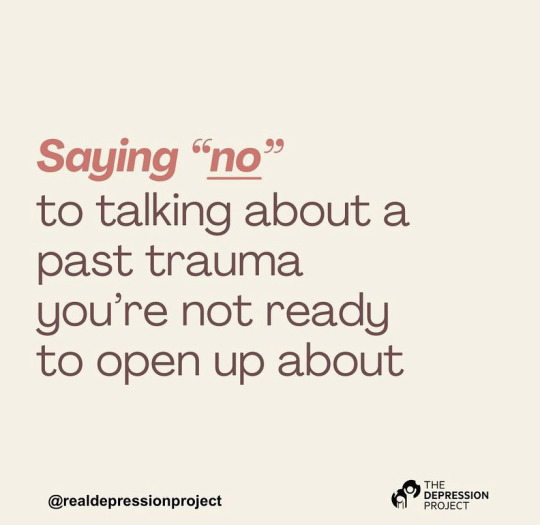
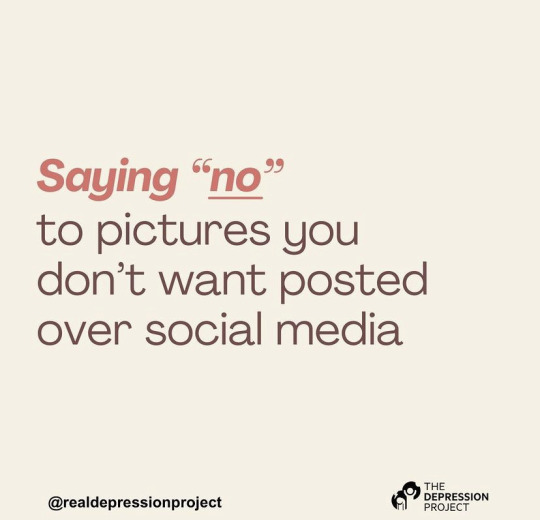
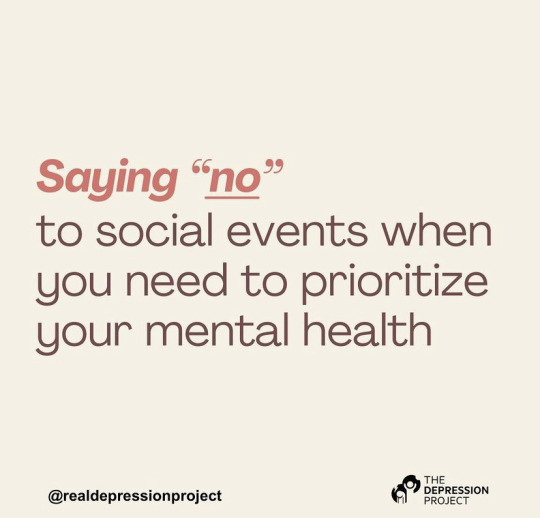
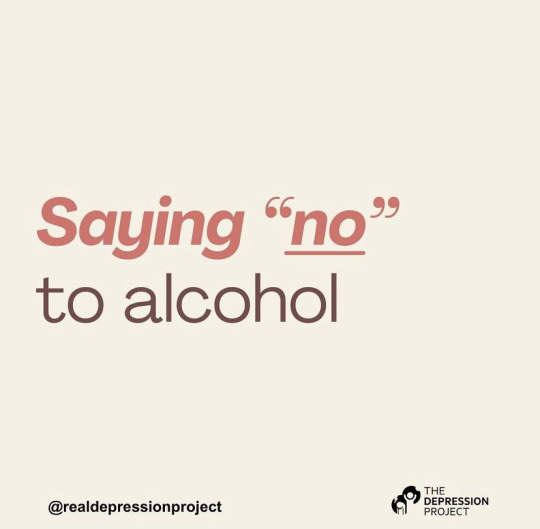
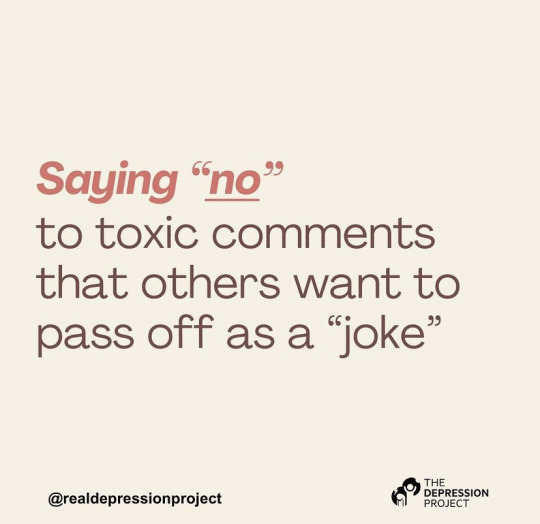
Credit
#mental health#positivity#mental illness#self care#mental health information#self help#recovery#pro recovery#ed recovery#actually cptsd#actuallytraumatized#low cal ed#actually dissociative#actually ptsd#eating disorder recovery#sk1nnie#an0r3xic#only pr0 for myself#tw sex#consent#ana vent#vent#4n0r3x14#skinnnny#I will be skiny#eating problems#made of styrofoam#depressing shit#self mutilation#self h@rm
3K notes
·
View notes
Text


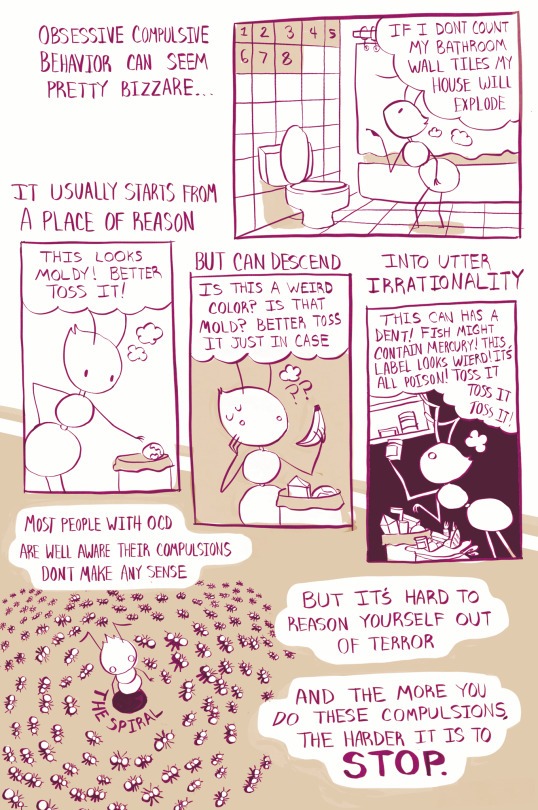
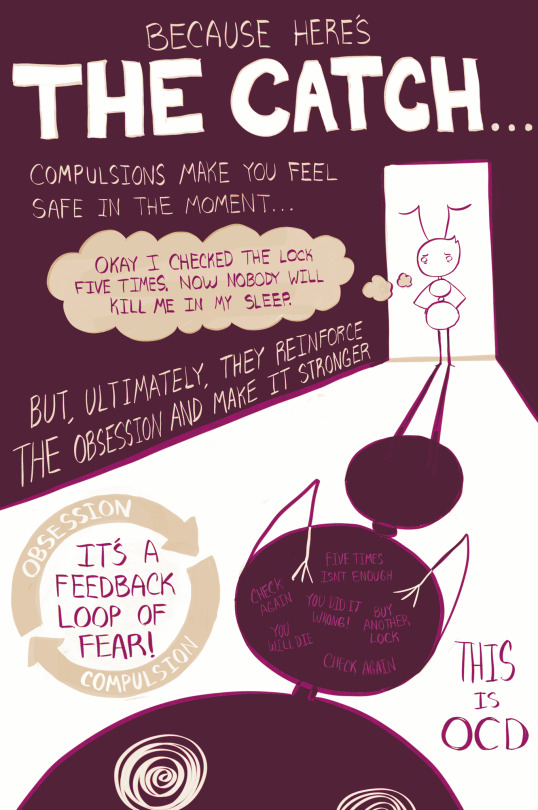

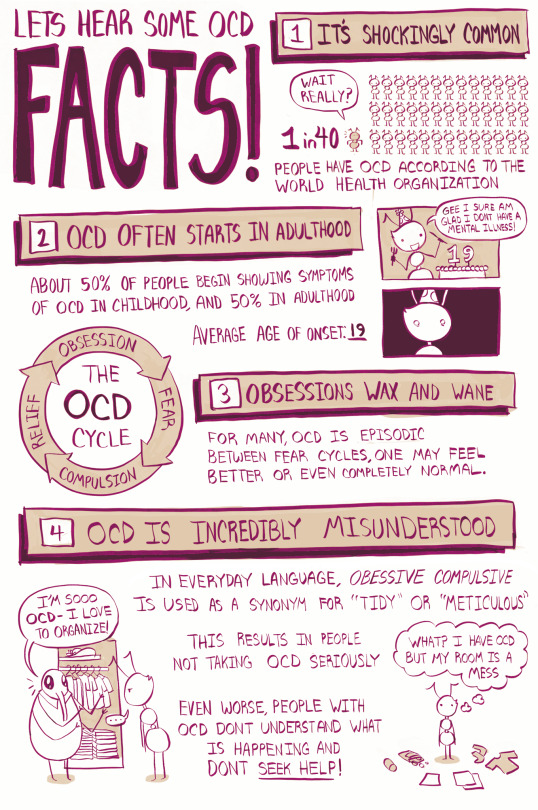
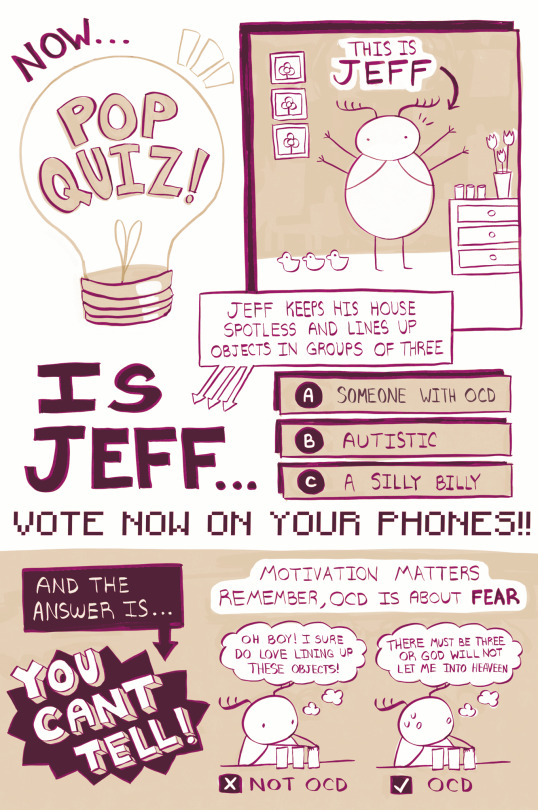


Greetings bugs and worms!
This comic is a little different than what I usually do but I worked real hard on it—Maybe I'll make more infographic stuff in the future this ended up being fun. Hope you learned something new :)
If you are still curious and want to learn more about OCD, you can visit the International OCD Foundation's website. I also recommend this amazing TED ED video "Starving The Monster", which was my first introduction to the disorder and this video by John Green about his own experience with OCD.
The IOCDF's website can also help you find support groups, therapy, and has lots of online guides and resources as well if you or a loved one is struggling with the disorder. It is very comprehensive!
Reblog to teach your followers about OCD
(But also not reblogging doesn't make you evil, silly goose)
#actually ocd#ocd#ocd tag#obsessive compulsive disorder#mental illness#mental health#neurodivergent#infographic#informative#comic#webcomic
48K notes
·
View notes
Text
Please, if you can, take a moment to read and share this because I feel like I'm screaming underwater.
NPD (Narcissistic Personality Disorder) stigma is rampant right now, and seems to be getting progressively worse. Everyone is using it as a buzzword in the worst ways possible, spreading misinformation and hatred against a real disorder.
I could go on a long time about how this happened, why it's factually incorrect (and what the disorder actually IS), why it's harmful, and the changes I'd like to see. But to keep this concise, I'll simply link to a few posts under the cut for further reading.
The point of this post is a plea. Please help stop the spread of stigma. Even in mental health communities, even around others with personality disorders, in neurodivergent "safe" spaces, other communities I thought people would be supportive in (e.g. trans support groups, progressive spaces in general), it keeps coming up. So I'm willing to bet that a lot of people on this site need to see this.
Because it's so hard to exist in this world.
My disorder already makes me feel as if I'm worthless and unlovable, like there's something inherently wrong and damaged about me. And it's so much harder to fight that and heal when my daily life consists of:
Laughing and spending time with my friends, doing my utmost best to connect and stay present and focused on them, trying to let my guards down and be real and believe I'm lovable- when suddenly they throw out the word "narcissist" to describe horrible people or someone they hate, or the conversation turns to how evil "people with narcissistic personality disorder" are. (Seriously, you don't know which of your friends might have NPD and feels like shit when you say those things & now knows that you'd hate them if you knew.)
Trying to look up "mental health positivity for people with npd", "mental health positivity cluster bs", only to find a) none of that, and b) more of the same old vile shit that makes me feel terrible about myself.
Having a hard time (which is constant at this point) and trying to look up resources for myself, only to again, find the same stigma. And no resources.
Not having any clue how to help myself, because even the mental health field is spitting so much vitriol at people with DISORDERS (who they're supposed to be helping!) that there's no solid research or therapy programs for people like me.
Losing close friends when they find out, despite us having had a good relationship before, and them KNOWING me and knowing that I'm not like the trending image of pwNPD. Because now they only see me through the lens of stigma and misinformation.
Hearing the same stigma come up literally wherever I go. Clubs. Meetings. Any online space. At the bus stop. At the mall. At a restaurant. At work. Buzzword of the year that everyone loooves loudly throwing around with their friends or over the phone. Feels awesome for me, makes my day so much better/s
I could go on for a long time, but I'm scared no one will read/rb this if it gets too much longer.
So please. Stop using the word "narcissist" as a synonym for "abusive".
Stop bringing up people you hate who you believe to have NPD because of a stigmatizing article full of misinformation whenever someone with actual NPD opens their mouth. (Imagine if people did that with any other disorder! "Hey, I'm autistic." "Oh... my old roommate screamed at me whenever I made noise around him, and didn't understand my needs, which seems like sensory overload and difficulty with social cues. He was definitely autistic. But as long as you're self-aware and always restraining your innate desire to be an abusive asshole, you're okay I guess, maybe." ...See how offensive and ignorant that is?)
Stop preventing healthcare for people with a disorder just because it's trendy to use us as a scapegoat.
If you got this far, thank you for reading, and please share this if you can. Further reading is under the cut.
NPD Criteria, re-written by someone who actually has NPD
Stigma in the DSM
Common perception of the DSM criteria vs how someone may actually experience them (Keep in mind that this is the way I personally experience these symptoms, and that presentation can vary a lot between individuals)
"Idk, the stigma is right though, because I've known a lot of people with NPD who are jerks, so I'm going to continue to support the blockage of treatment for this condition."
(All of these were written by me, because I didn't want to link to other folks' posts without permission, but if you want to add your own links in reblogs or replies please feel free <3)
#actuallynpd#signal boost#actuallyautistic#mental health awareness#narcissistic personality disorder#people also need to realize that mental health professionals aren't immune from bias#(it really shouldn't come as a shock that the mental health field has a longstanding pattern of misunderstanding and mistreating ppl who ar#mentally ill or otherwise ND)#the first therapist i brought up NPD to like. literally pulled out the DSM bc she could barely remember the criteria. then said that there'#no way I have it because I have low self-esteem lmaoooooo#anyway throwback to being at work and chatting with a co-worker. and the conversation turning to mental health. and him saying that#he tries to stay informed and be aware and supportive of mental health conditions & that he doesn't want to be ignorant or spread harmful#misinformation. and then i mentioned that i do a lot of research into mental health stuff and i listed a bunch of things. which included#several personality disorders. one of which was NPD.#and after listening to my whole ass list he zeroed in on the NPD and immediately started talking about how narcissists are abusive and#he knew someone who had NPD and how the person who had it had an addiction and died from the addiction in a horrible way and he#was glad he did#fun times#or when i decided to be vulnerable and talk abt my self-criticism/self-hatred bc i knew my friends also struggled w that and i wanted to#support them by sharing my own coping methods. and they both(separately!) started picking and prodding at my npd through the lens of stigma#bc i'd recently opened up to them abt having it. they recognized self-hatred as a symptom and still jumped on me for it. despite me#trying to share hurt vulnerable parts of myself to help them and connect with them.#again..... fun times
7K notes
·
View notes
Text
DpxDc AU: Justice League requires all of its youngest members to list at least one adult emergency contact in case something happens out in the field- And Lancer did tell Danny to put his number down if he needed help!
Lancer wanted to call CPS, wanted to call them for years, but something was wrong with his beloved town and the government agents that came were always… ill mannered. To say the least. So with the young Mr.Fenton appearing wounded in his class on multiple occasions, sleeping through lectures even more often, Lancer felt himself gradually accept that no other adult was going to step up to protect this child.
He figures out his Identity as Phantom and it makes his rage boil hotter than Dante’s sixth layer of hell. Danny refuses to abandon his parents (who continue to hunt him unknowingly), and he refuses to let any of his ghostly responsibilities fall wayside (this CW fellow is a real piece of work!).
But for all the things he expected when he told Danny that he could be trusted and could help- Ms. Manson and Mr.Foley coming to him for help, patching wounds, offering snacks and covering for Danny when attacks occurred in class- he hadn’t expected the Justice League to be knocking on his door.
Lancer blinked at the appearance of Batman in his classroom after the final bell, but then his stomach dropped.
TELLTALE HEART THATS THE BATMAN!!
“Phantom listed you as his emergency contact. Have you had any recent communication with him?” The deep, gravel voice startled Lancer.
Lancer checks his phone, Danny had skipped class today; and while Lancer was working with Danny to get him after school lessons and tutoring for all of the hours he missed, it was uncommon for him not to respond at Lancer’s text asking for a confirmation of his safety.
“Not in 24 hours, but I can message him again.” Lancer is shaking as he types on his phone to team phantom-Who wouldn’t be nervous at both the implications of Danny’s safety and the Batman??
Superman flies into the room from the open doorway, “No luck, without a heartbeat I can’t find him. Where ever they have him it’s lead lined or he’s keeping himself invisible.”
SCARLET LETTER ITS SUPERMAN!?!
Danny doesn’t reply to Lancer, and neither do Danny’s friends.
“He has two team members with whom he is inseparable, if none of them are responding then all three have been accosted. I’m coming with you until we find them.” Lancer declares and while he’s sure that Batman is unimpressed, Superman gives him a sad smile and nods.
Thus Lancer joins the Justice League for a day, Helps to save Team Phantom and Informs the takedown of an illegal government agency.
Batman also slides him some adoption papers and a card for a lawyer if Lancer decides to formally adopt Danny. Lancer also wins a Wayne Excellence Award for Teaching that year but he’s pretty sure the money is unrelated to Danny’s alter ego- after all, Lancer is a fantastic teacher.
#dcxdp#dpxdc#dc x dp#danny phantom#dp x dc#dc crossover#dp crossover#I like to think that lancer learns so much about the IR from Danny that he becomes akin to a consultant for the JL and JLD#like a ghost appears and if Danny is in a different dimension or smith they just call his English teacher#lancer being a bro to Danny is my fave#but I’m biased cause I had an English teacher who noticed my mental health decline before anyone else bothered to care#lancer gets a check in the mail and it’s for a ton of money and it’s labeled JL Hazard Pay#Bruce: game respects game#lancer corrects both Constantine’s information and his grammar
4K notes
·
View notes
Text
May you live an existence that doesn’t require constant resilience.
#mental health#mental illness#mental health matters#trauma#resilience#resilient#trauma informed#trauma informed counseling#counseling#counselor#therapy#therapist#therapy is cool#leftblr#defleftist#leftist#life
35K notes
·
View notes
Text
Social media posts criticize the new 988 Suicide Hotline
Social media posts criticize the new 988 Suicide Hotline
The July launch of the 988 Suicide & Crisis Lifeline was celebrated by many mental health providers and lawyers, but it also raised concerns among people who said using the service could lead to increased law enforcement involvement or forced hospitalization. .
.

View On WordPress
#addiction#anxiety#bipolar#depression#Mental Health Disorders#Mental health information#mental illness#Panic#Schizophrenia
0 notes
Text
You don't need a reason to distance yourself from people. If they give you bad vibes then you deserve to honor that gut feeling and protect yourself. Even if they're not doing anything wrong or bad or even if they haven't done anything to you. You can just straight up not like someone, no context necessary. That's valid af and there's not enough emphasis on intuition and gut feelings. Yes, absolutely. Listen to your instincts.
#recovery#ptsd#trauma#mental health#boundaries#healing#healing thoughts#people pleasing#codependency#social anxiety#setting boundaries#self awareness#self actualization#self care#self worth#self esteem#communication#relationships#toxic relationships#trauma informed
426 notes
·
View notes
Text
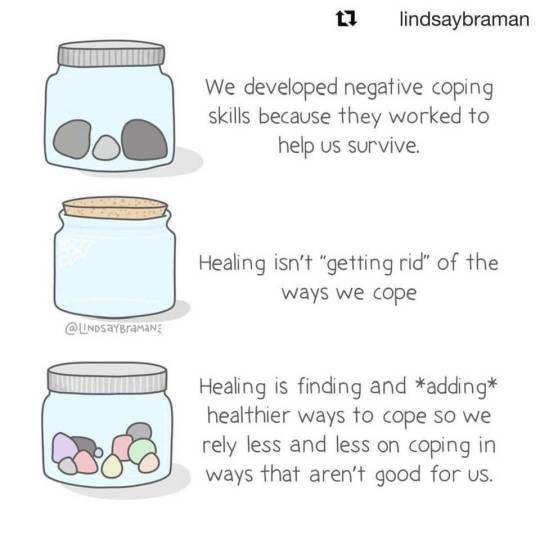
#healing#recovery#trauma#trauma informed#self compassion#mental health#self forgiveness#self compassion and accountability can and must coexist#doing your best#healing is not linear#progress#progress not perfection#self care
2K notes
·
View notes
Text
Signs to tell if the person in your inbox, asking you to reblog a post with a link asking people to donate money for their sick pet or kid, is a scam
Before we start, a disclaimer that this is NOT a solid confirmation that this person must be a scammer. The intention of this is for you to be wary and always check before donating or rebloging this type of post.
Without further ado and from firsthand experience, here are the red flags:
The person in your inbox asking you to reblog a post with their donation link will always ask you NOT to publish the ask they sent you (but to only reblog their post), and their reasoning would always be something along the line of “I don’t want people to think I pressured you into doing it🥺”
But if you go to the person’s profile with their post asking for donation, 100% of the time, you’ll find that the account has only just been created days ago. — How can you tell this? Easy. You can literally scroll down to the first ever post of their blog in less than 10 seconds.
The thing these scammers have in common is that they will create a new blog and they WILL reblog some general posts, such as fandom posts, to make their blogs look legit. They will have legit profile pictures so they don’t look like bots. But it will always be a newly created blog with several reblogs (mostly about fandoms, because they know rebloging fandom posts will make them look more legit than if they were to reblog some suggestive photos of some women, since the latter will make them look like p0rn bots), and the only original post they made is that post asking for donation.
Move on to the information they provided about their sick pet or kid. They will provide thorough and detailed information to make it look legit. But the thing is that they could just take that from google or steal that information from someone who actually needed the donation. There is never a way to tell if your money will go directly to help save the pet or the kid. My advice is to google the patient’s name and see how old the case is, if the case of this patient with this name and this information has been used to ask for donation by other people before, etc.
The photo of the patient they gave can also help you determine if it’s legit. Save that photo and then use google image search to see if it’s an original photo or if it’s a stolen one that has been used before.
Bonus: the thing these scammers can’t do is provide updates about how the patient’s doing. So it’s only just one post with the link asking you for your money. If it is legit, you should be able to see consistent updates of how this patient is doing or if there’s any change, etc. (I’m not saying it’s a requirement for those whose loved one is in critical care to post updates on social media all the time, I’m simply pointing out that scammers tend to fail to provide any update because they can’t.)
I’ll always encourage donating and helping spread the posts of those who actually are in need, though it’s just so unfortunate that, while there are people who are genuinely struggling, there are a lot of scammers out there looking for an opportunity to take advantage of people’s kindness and using sick pet or kid as a way to scam people and making it more difficult for people who really need help to be taken seriously.
Last but not least, fuck those scammers. Stay safe y’all.
#important#psa#important psa#b00st#signal b00st#signal boost#useful information#useful tips#life tips#healthcare#mental health#mental health awareness#self care#self love#tumblr#mental health care#positivity#life lessons#life coaching#life hacks
169 notes
·
View notes
Text
I started watching Taskmaster less than a year ago and it's helped my executive dysfunction so much. It is the ultimate "doing a minor task" hack.
A few of the ones I use a lot:
Wash your hair. Cleanest hair wins. Your time starts now.
Catch the bus on time. You must have everything in your backpack and have completed your morning routine before you leave. Person on the bus closest to the time it leaves, wins. You have an hour; your time starts now.
Wash and fold the laundry. Cleanest laundry wins. Your time starts now.
Complete the homework assignment. It must check all the criteria on the rubric. The Taskmaster will assess your answer on a scale of 0-100. Closest to 100 wins. You have two days; your time starts now.
Wash the dishes. Cleanest dishes wins. Your time starts now.
I know what this is not what Mr. Alex Horne had in mind when he made this show but it has improved my life so much
#it's so easy bc it directly states what you have to do/how you're being assessed on it/and how long you have to do it#all the information is on the task#taskmaster#taskmaster uk#alex horne#mental health#executive dysfunction
933 notes
·
View notes
Text
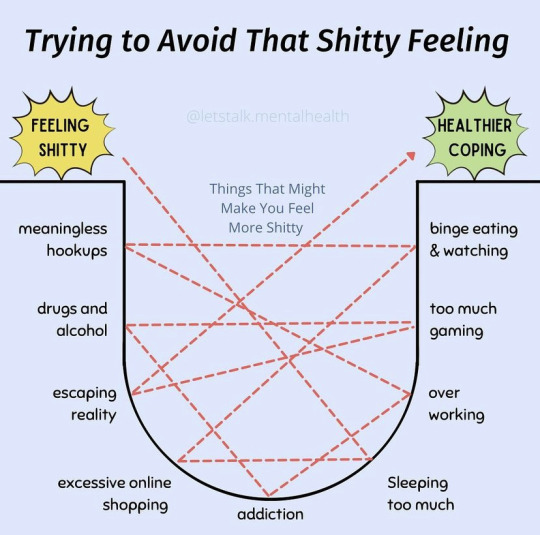
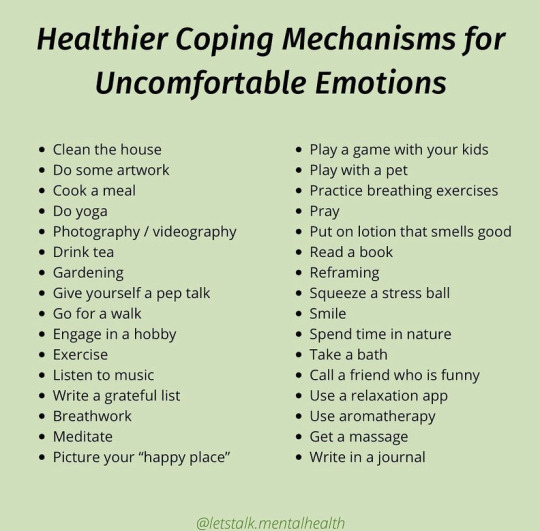
Credit
#mental health#positivity#mental illness#self care#self help#info#mental health information#recovery#pro recovery#ed recovery#actually cptsd#actuallytraumatized#actually dissociative#actually ptsd#eating disorder recovery#actuallyabused#actuallymentallyill#actuallyocd#actually autistic#actually traumagenic#trauma#childhood trauma#mentally ill#made of styrofoam#only pr0 for myself#dissociative identity disorder#obsessive compulsive disorder#inner child#ana e mia#cvtt1ng
638 notes
·
View notes
Text
r/systemscringe fools still think all voices in DID are bad. 😔


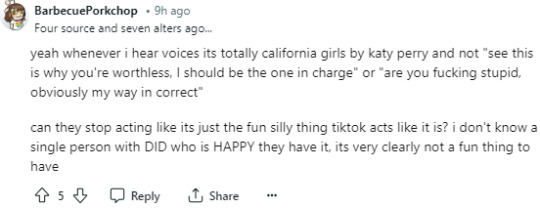
Now, I posted this in my big debunking post of r/systemscringe's lies about DID, but it bears repeating... Studies have shown that nearly 70% of voice hearers with DID report that they would miss the voices if they stopped. This is compared with much lower margins for schizophrenic groups:

Now, it is absolutely valid if you're a system who just hates all aspects of being a system, including hearing the voices of your alters.
After all, nearly 30% of DID patients in this study did, which is still a pretty huge number. It's a big minority.
But this is not everyone. This is not the majority.
Just because you experience something a certain way, that doesn't mean everyone will!
And having a good relationship with your alters isn't a sign of faking!
#syscourse#pro endogenic#pro endo#psychiatry#psychology#sysblr#multiplicity#information#mental health#plural#plurality#system#systems#plural system#actually a system#actually plural
110 notes
·
View notes
Text
I know this goes against the Customer Service Canon but after three years of mostly being at home alone due to unemployment, I actually feel like it's been doing me some good being in my new customer service role where I have to be nice to people and act out being in a good mood. You know that rule about how faking a smile still releases the happy hormones? Feels kind of like that.
Like don't get me wrong, I'm still an introvert by nature so I'm exhausted when I get home. And I still get fussed at by angry patients sometimes, I still get rude people. It's not a walk in the park. But even when I wasn't working, I still ran into assholes everywhere that could ruin my day. Meanwhile being in a job where I have to interact with people and be helpful no matter what has led to me having a lot more positive interactions in a day than I've had in years. I get people expressing gratitude to me. I get to actually feel like I'm making a difference in someone's day and that I'm needed. Really feeling the pack animal dopamine that I've been deficient in for years that just isn't possible to get through the internet.
#I regret to inform the introvert hermit site that human interaction has been good for my mental health after all#devastating news#I still don't think this role in particular is my forever job because it's so hectic all day#literally nonstop Go Go Go the moment our practice opens#and that leaves me really drained#but overall I can tell there's a marked improvement from having interaction forced upon me
95 notes
·
View notes
Text

Stinky Bear Motivation ✨❤️
Fear needs to be met with comfort and safety. Anxiety is all about fear. Define the fear, put a name to your worries, and then meet yourself with comfort and make a safety plan for what could possibly go wrong.
You deserve to be comforted through the fears! Feel the fear and snuggle it anyway!
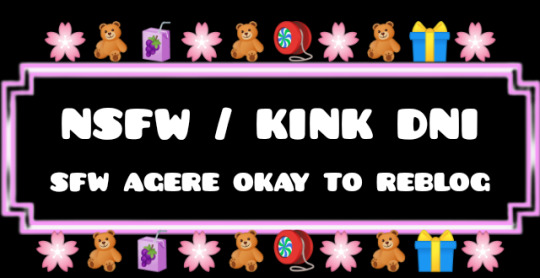

#mental health#depression#anxiety#trauma#recovery#boundaries#positivity#motivation#suggestions#soft positivity#warm positivity#compassion#self compassion#self help#self care#self esteem#trauma informed#trauma awareness#ptsd#bpd#softcore#compassionate reminders#reminders#encouragement#healing#healing positivity
126 notes
·
View notes
Text
There is no "right" or "wrong" way to react to trauma. There is only survival. You do what you can until you can get out and get safe, and that is the only thing that should ever matter. You deserve to be respected for how you cope with your pain. But you also deserve to be respected enough to know you're worth the effort to heal and seek recovery if you so choose.
#recovery#ptsd#trauma#mental health#boundaries#healing#healing thoughts#trauma awareness#trauma informed#positivity#soft positivity#actually abused#actually traumatized#bpd#childhood trauma#recovery positivity#acoa#toxic relationships#abusive relationships#abusive parents
366 notes
·
View notes
Text

Title: Shadow Work: First Steps
Related Articles
Shadow Work Concepts
Emanations of The Subconscious
Dualities
Biases in Witchcraft
Finding Balance
Divination
Basics of Spellcasting
Basics of Astral Projection
Fundamentals of Energy Work
Spell Design
What is Witchcraft?
Important: Shadow work is in no way necessary for witchcraft. Nor should magical applications of shadow work be the crux of your self-reflection.
The concept of the shadow holds a lot of significance to most witches today. The shadow, as elucidated by Carl Jung, represents the concealed and often repressed aspects of an individual's psyche. It encompasses the less desirable qualities, such as fears, insecurities, and suppressed emotions, which are typically kept hidden from conscious awareness. Engaging in magical shadow work entails embarking upon a journey of self-discovery and self-integration, allowing individuals to explore these hidden depths in order to achieve greater personal understanding and growth. And while Jung may not have been the most savory character, his contributions were and continue to be very useful! I highly recommend looking into his ideas and how you can potentially modify them to better fit your own life.
The Shadow
The shadow, as defined and utilized in shadow work, refers to the concealed and often repressed aspects of an individual's psyche. The shadow represents the repository of thoughts, emotions, and impulses that are deemed unacceptable or incompatible with one's conscious self-image. A lot of the shadow’s characteristics are forged through traumatic experiences and manifest themselves as trauma responses. These hidden aspects of the self reside in the unconscious mind, remaining largely inaccessible to conscious awareness.
Shadow work involves a deliberate and introspective exploration of these suppressed elements. It is a process of bringing to light the aspects of ourselves that we may disown or deny, aiming to integrate them into our conscious selfhood. By engaging with the shadow, individuals gain insight into their fears, insecurities, and unresolved conflicts, shedding light on the hidden motivations behind their thoughts, emotions, and behaviors. This exploration of the shadow is not limited to psychological analysis alone. It encompasses various practices and techniques, such as magic, divination, self-reflection, journaling, therapy, and emotional intelligence development. Shadow work allows individuals to confront and confront their shadows in a compassionate and non-judgmental manner, promoting personal growth, self-acceptance, and authenticity.

Techniques for Exploring and Integrating the Shadow
One approach to delving into the depths of the shadow is through the practice of meditation. By cultivating a focused and contemplative state of mind, individuals can delve into their subconscious and uncover suppressed emotions, memories, and beliefs. Through consistent meditation practice, one can gradually bring these shadows into conscious awareness, allowing for a deeper understanding of oneself.
Rituals and spellwork can serve as transformative tools in shadow work. Rituals provide a structured framework within which individuals can confront and engage with their shadows. By employing symbolic gestures, such as the use of correspondences or ritual objects, or the implementation of astral projections and energy work, practitioners can externalize their inner struggles and navigate the complexities of their shadows in a controlled and intentional manner. Through spellwork, it is possible to influence the psyche, open up self awareness, make it easier to gain access to repressed memories, aid in inducing relaxed states, and form energetic representations of emotional states.
Archetypes and symbolism serve as potent vehicles for exploring the shadow within magical practice. Archetypes represent universal patterns and primordial images that exist within the collective unconscious. By working with archetypal energies, individuals can gain insight into their own shadows and access the transformative potential residing within them. Symbolism, too, can play a central role in shadow work, as it allows practitioners to express and explore complex emotions and experiences that may be difficult to articulate directly. By utilizing symbols, such as colors, animals, or mythological motifs, individuals can unlock the safety, self-awareness, and confidence contained within their shadows.

Magical Shadow Work
One of the primary benefits of engaging in magical shadow work is the revelation of hidden aspects of the self. By courageously diving into the shadow, individuals can shed light on the suppressed emotions, desires, and beliefs that have influenced their thoughts and behaviors. This process of self-exploration enables individuals to develop a more comprehensive understanding of their true nature, promoting authenticity and self-acceptance.
Magical shadow work also holds the potential for healing past wounds and traumas. By addressing the suppressed emotions and traumas stored within the shadow, individuals can initiate a process of emotional and psychological healing. Confronting and processing these experiences in a supportive and intentional manner allows for the release of stagnant energy and the restoration of emotional well-being. Engaging with the shadow can lead to personal transformation and empowerment. As individuals become aware of and integrate their shadows, they gain the ability to reclaim the aspects of themselves that were once repressed or denied. By embracing the full spectrum of their being, individuals unlock their true potential and experience a greater sense of wholeness and authenticity.
Before engaging in magical shadow work, It would be wise to approach it mundanely first. At the very least, mundane shadow work will give you an idea of what your shadow is, the shape of it, its reactionary patterns, its roots. Without mundane shadow work, or a very experienced healer, you’ll be flying blind. Shadow work is an intimate process of getting refamiliarized with the sum total of your being, your life. If you’re ready for magical shadow work, here are some spells that can help. (Be sure that they’re of your design for best results.)
Anti-anxiety spell candle
Spell to remember dreams
Spell to make accessing sensitive memories easier
Binding your own trauma response (temporarily)
Cord cutting (Actual cord cutting, not that candle & string tiktok bs)
Glamour for self-love and acknowledgement
Reveal truth spell
I may write some spells for this purpose, If I do, I will link them here in this section.

Mundane Shadow Work
Mundane shadow work refers to the process of exploring and integrating the hidden aspects of the self from a psychological and self-care perspective, without invoking supernatural or metaphysical beliefs. It involves delving into the unconscious patterns, beliefs, and behaviors that shape an individual's thoughts and actions; as well as taking the time to care for yourself, even when the cost required to do so means draining yourself. Unlike magical or mystical approaches, mundane shadow work focuses on psychological principles and practices to uncover and address these hidden aspects.
From a psychological standpoint, mundane shadow work involves examining the unconscious patterns and behaviors that influence an individual's life. The unconscious mind plays a vital role in shaping thoughts, emotions, and actions, often driven by deep-seated fears, unresolved conflicts, and unacknowledged desires. By exploring and understanding these unconscious elements, individuals can gain insight into the underlying motivations and dynamics that affect their daily lives. Mundane shadow work also involves exploring the impact of childhood conditioning and societal influences on one's personality and behavior. Early experiences and societal norms can shape beliefs, values, and attitudes that may be limiting or detrimental. Through introspection and analysis, individuals can identify and challenge ingrained patterns and beliefs that no longer serve their personal growth and well-being.
Self-reflection and journaling are effective practices for mundane shadow work. Taking time to reflect on thoughts, emotions, and experiences can help uncover hidden patterns and gain insight into one's motivations and reactions. Writing in a journal allows for a deeper exploration of thoughts and feelings, enabling individuals to recognize recurring themes, triggers, and patterns in their lives.
Self-care can serve as a valuable tool for shadow work, facilitating the exploration and integration of hidden aspects of the self. By engaging in self-care practices, individuals create a nurturing and supportive environment that allows for deep introspection and personal growth.
Examples of self-care as a form of shadow work include:
1. Mindfulness and Meditation: Practicing mindfulness cultivates awareness of one's thoughts, emotions, and sensations, creating a space for acknowledging and exploring the shadow. Meditation provides an opportunity to observe and process unconscious patterns and emotions that may arise during the practice.
2. Journaling and Reflection: Writing in a journal encourages self-reflection and can help uncover hidden aspects of the self. By expressing thoughts, emotions, and experiences on paper, individuals gain insights into their shadows and can identify recurring patterns or triggers.
3. Self-Compassion and Self-Acceptance: Embracing self-compassion and self-acceptance involves acknowledging and accepting all aspects of the self, including the shadow. By practicing self-compassion, individuals can foster a non-judgmental and nurturing attitude towards themselves, creating space for healing and growth.
4. Emotional Regulation and Boundaries: Developing emotional regulation skills allows individuals to navigate and process challenging emotions that may arise during shadow work. Setting boundaries helps establish a safe and supportive environment, protecting one's well-being and allowing for focused introspection.
5. Rest and Relaxation: Prioritizing rest and relaxation is essential for replenishing energy and fostering emotional well-being. Taking breaks, engaging in hobbies, and practicing self-care rituals such as baths or massages create a conducive environment for self-exploration and introspection.
By incorporating self-care practices into one's routine, individuals can enhance their well-being while simultaneously engaging in shadow work. These practices create a nurturing space for deep reflection, emotional processing, and personal growth. Self-care as a form of shadow work enables individuals to develop a deeper understanding and acceptance of their shadows, leading to greater self-awareness and integration.
Engaging in therapy or counseling is a valuable approach to mundane shadow work. Mental health professionals provide a supportive and objective environment where individuals can explore their unconscious patterns, childhood conditioning, and societal influences. Therapeutic techniques, such as psychodynamic therapy or cognitive-behavioral therapy, can aid in uncovering and addressing underlying issues, facilitating personal growth and transformation.
Developing emotional intelligence is another crucial aspect of mundane shadow work. Emotional intelligence encompasses the ability to identify, understand, and manage one's own emotions, as well as the emotions of others. By enhancing emotional awareness and regulation, individuals can gain insight into their unconscious emotional reactions and learn healthier ways of expressing and processing emotions. Practices such as mindfulness meditation, emotional regulation exercises, and empathy-building activities contribute to the development of emotional intelligence.
Mundane shadow work is an integral part of personal growth and self-actualization. By exploring and integrating the hidden aspects of the self, individuals can achieve a deeper understanding of their motivations, desires, and fears. This process fosters self-acceptance, self-compassion, and a greater sense of authenticity. Through mundane shadow work, individuals gain the opportunity to transform limiting beliefs, heal emotional wounds, and cultivate healthier relationships with themselves and others.

Similarities and Differences between Magical and Mundane Shadow Work
Magical and mundane shadow work share common goals and principles despite their different approaches. Both seek to explore and integrate the hidden aspects of the self, acknowledging the existence of unconscious patterns and behaviors that influence thoughts and actions. The shared goal is to achieve personal growth, self-awareness, and transformation. Both approaches recognize the importance of addressing suppressed emotions, traumas, and limiting beliefs for healing and achieving a more authentic and fulfilling life.
Magical shadow work often involves metaphysical or spiritual practices and rituals, whereas mundane shadow work focuses on psychological principles. In magical shadow work, practitioners may utilize meditation, visualization, energy work, rituals, and working with archetypes and symbolism.
In contrast, mundane shadow work primarily relies on psychological approaches supported by scientific research. It emphasizes self-reflection, introspection, therapy, and emotional intelligence development. Techniques such as journaling, therapy, and emotional regulation exercises are used to explore and understand unconscious patterns, childhood conditioning, and societal influences. Mundane shadow work seeks to integrate psychological principles and evidence-based practices for personal growth and transformation. Mundane shadow work can also use symbolism and work with archetypes. The shadow is an archetype, a subcategorization of the psyche.
While magical and mundane shadow work have contrasting approaches, they also have complementary aspects that can be integrated for an approach to self-discovery and growth. Practitioners can incorporate psychological techniques into magical shadow work. For instance, individuals can use self-reflection and journaling to deepen their understanding of the symbolism and archetypes encountered in magical practices. This integration can provide a psychological framework for exploring and processing the experiences and insights gained from themagical, mystical, and metaphysical practices, enhancing self-awareness and personal growth. In mundane shadow work, practitioners can draw inspiration from the use of symbolism and archetypes in magical practices. Symbolism and archetypes provide a rich language for exploring and expressing complex emotions, experiences, and unconscious patterns. By incorporating these symbolic elements into therapy or counseling, individuals can tap into a deeper layer of self-understanding and facilitate transformative healing processes.
Both magical and mundane shadow work recognize the importance of the mind-body connection in personal growth. Engaging in practices such as meditation, mindfulness, or breathwork can foster a deeper connection with the self and facilitate emotional and psychological healing. This mind-body integration can bridge the gap between magical and mundane approaches, emphasizing the interplay of thoughts, emotions, and physical sensations in the process of shadow work. Both require a level of intimacy and honesty that may be uncomfortable for those who are just starting. They both often involve reflecting on past traumas and how they are reacted to.

Choosing the Right Approach
When it comes to shadow work, it is crucial to choose an approach that aligns with individual preferences, needs, and goals. While both magical and mundane methods offer unique perspectives, it is essential to consider personal inclinations and strike a balance between the two. However, prioritizing mundane approaches for mental health considerations is of utmost importance. Without professional guidance, a practitioner may end up hurting themselves more than healing. Especially for younger practitioners.
Each individual has their own preferences and inclinations when it comes to self-exploration and personal growth. Some may resonate more with the mystical and metaphysical aspects of magical shadow work, while others may find solace and effectiveness in the practical and evidence-based approaches of mundane shadow work. It is essential to honor these individual preferences and inclinations when selecting an approach to shadow work.
Before starting shadow work, it is vital to identify personal needs, goals, traumas, boundaries, and influences. What aspects of the self do you wish to explore? Are you seeking healing from past traumas or a deeper understanding of your unconscious patterns? Understanding your specific needs and goals can help determine the most suitable approach for your shadow work journey. Finding a balance between magical and mundane approaches can provide a well-rounded and comprehensive experience. The metaphysical aspects of magical shadow work can offer a sense of awe, wonder, and connection to something greater than oneself. On the other hand, the psychological grounding of mundane shadow work can provide a practical framework for understanding and integrating the shadow. By incorporating elements from both approaches, individuals can tap into their intuition while also utilizing evidence-based practices for self-discovery and personal growth.
While both magical and mundane approaches have their merits, prioritizing mundane approaches to mental health is crucial. Mundane shadow work is rooted in psychological principles and has a strong evidence base. Engaging in therapy or counseling, utilizing psychological techniques, and focusing on emotional well-being are essential components of addressing mental health concerns. It is important to recognize that while magical shadow work may provide spiritual or mystical insights, it should not be relied upon as a sole solution for mental health challenges. By prioritizing mundane approaches to mental health, individuals can ensure they receive the necessary support and guidance from qualified professionals. Therapeutic interventions provide a safe and structured environment for exploring the depths of the shadow, addressing past traumas, and developing healthier coping mechanisms. Taking care of one's mental well-being is paramount and should not be overshadowed by the allure of magical or mystical practices alone.

How Shadow Work Enhances Magical Practice
Shadow work, with its focus on exploring and integrating the hidden aspects of the self, can significantly improve magical practice in various ways. By delving into the depths of the shadow, practitioners can enhance magical potency, deepen their connection to their own practice, and develop self-awareness regarding potential negative influences on their spellwork, metaphysics, and magical praxis.
Shadow work can enhance magical potency by addressing and transforming the unconscious patterns, fears, and limiting beliefs that may hinder the effectiveness of magical practice. When practitioners engage in shadow work, they uncover and work through these hidden aspects, allowing them to reclaim personal power and align their intentions and energies more effectively. By integrating the shadow, practitioners can cultivate a greater sense of authenticity, clarity, and focus, thereby magnifying the potency of their magical endeavors.
Shadow work offers a unique opportunity to deepen the connection one has to their own magical practice. By exploring the depths of the shadow, practitioners gain insights into their motivations, desires, and fears that may unconsciously influence their magical workings. This self-exploration allows practitioners to align their magical practice with their true selves, fostering a deeper sense of connection, purpose, and resonance. By integrating the shadow, practitioners can cultivate a more authentic and fulfilling magical journey.
Engaging in shadow work helps practitioners become self-aware of potential negative influences on their spellwork, metaphysics, and magical praxis. The shadow, with its hidden and repressed aspects, can manifest in unintended ways within magical practice. By exploring the shadow, practitioners can bring these influences into conscious awareness, thereby minimizing their detrimental effects. This self-awareness enables practitioners to identify and address biases, unresolved traumas, and unacknowledged emotions that may impact their magical workings. By integrating the shadow, practitioners can ensure that their spellwork and metaphysical understanding align with their authentic selves, promoting ethical, balanced, and effective magical praxis.
To become self-aware of the shadow's potential negative influence, practitioners can engage in regular self-reflection, journaling, and introspection. They can analyze their magical experiences, observe recurring patterns or emotional reactions, and critically evaluate their intentions and motivations. Seeking feedback from trusted peers or mentors can also provide valuable insights and help uncover blind spots or unconscious biases. By developing this self-awareness, practitioners can actively work towards minimizing negative influences and ensuring their magical practice aligns with their true values and intentions.

Tips for Shadow Work
Prepare by gathering comforting items and keeping them close by so they can be used afterwards.
Bathe afterwards (This may not be helpful if you suffer from dysphoria)
Practice regular meditation so that it becomes easier
Take notes during solo shadow work practices in order to discuss the points with a therapist.
Analyze personal biases and preconceptions to prevent them from influencing your exploration.
Understand intersectionality and how it affects your life.
Utilize symbols and archetypes without ascribing unnecessary magical attributes to them.
Cultivate emotional awareness, empathy, and self-regulation.
Seek information from various disciplines, including psychology, history, and ethics, and apply critical thinking to what you read.
Stay open to different viewpoints and be willing to modify your beliefs as you learn.
Dedicate time to reflection and self-assessment to facilitate growth.
Strive for authenticity rather than attempting to conform to any particular spiritual or magical tradition.
Understand your limits and maintain healthy boundaries in your practices.
Recognize that tools and accessories can aid practice but are not inherently magical. They only serve to support headspace.
Share your findings and thoughts with a professional for feedback.
Recognize the cultural origins of various practices and treat them with respect.
Distinguish between metaphorical and literal interpretations to prevent falling into delusions, especially for those with a mental illness.
Extend compassion to yourself and others, recognizing that shadow work can be a challenging process.
Understand that shadow work leads to change, and be willing to embrace it.
Surround yourself with supportive friends, family, or community.
Keeping a journal aids in tracking progress and thoughts.
Acknowledge your responsibility for your actions and beliefs.
Understand that complex phenomena cannot be reduced to overly simplistic explanations.
Seek out primary sources when researching different traditions.
Utilize both logic and intuition in a balanced way.
Recognize how language shapes thought and be mindful of your word choices.
Understand historical practices in their proper context without romanticizing them.
Recognize the metaphorical nature of certain concepts without taking them literally.
If using substances to aid in exploration, do so responsibly and with awareness of potential risks. It is unwise to employ alcohol consumption for shadow work.
Establish a physical and emotional environment that feels safe and conducive to exploration.
Stay clear of pseudoscientific explanations and theories. Especially those originating from New Age “Spirituality”.
Understand that shadow work can be taxing and prioritize self-care.
Recognize the limits of personal understanding and be humble in your approach.
Embrace a nuanced view that avoids rigid binary classifications.
Familiarize yourself with psychological theories that pertain to consciousness and the unconscious.
Be aware of the tendency to seek information that confirms pre-existing beliefs.
Recognize the connection between body and mind and engage in physical activities that promote well-being.
Recognize and avoid superstitions that might influence rational thinking.
Understand how societal norms and constructs can shape personal beliefs and behaviors.
If using visualization, do so with an understanding of its psychological basis rather than mystical.
Recognize the multifaceted nature of human personality and experience.
Be willing to change directions in your practice if something is not working, regardless of the time and effort invested.
Establish a consistent routine that supports your shadow work practice.
Maintain a strong connection to reality, recognizing the symbolic or metaphorical nature of many spiritual or magical concepts
See if this post updated
Interested in my other articles? You can find my masterpost here.

Patron Shoutouts!
Megan Kipp
Jinsu
Ing Mar
Cosmicauquamarie
Elizabeth
Ash

Thank you for your continued support! My patrons help me maintain the drive to create content and help me keep food in my pantry.
My patrons of Mystic tier and higher had access to this article a week before it was public! To see other perks of supporting me, click here!
174 notes
·
View notes